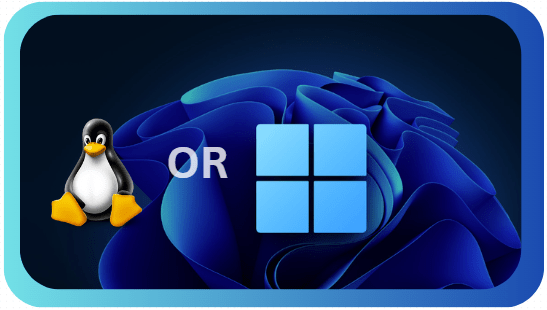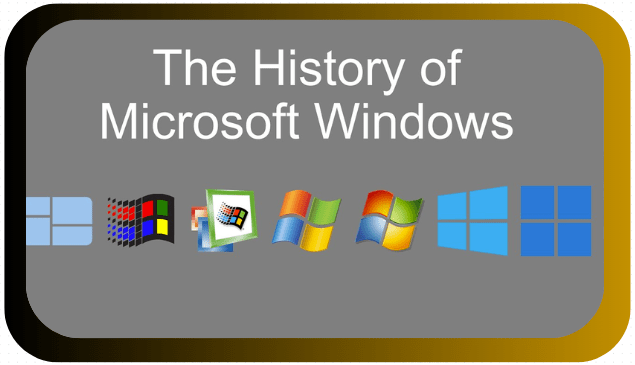
When choosing an operating system (OS), the debate between Linux or Windows is a critical one. Both are powerful, versatile platforms, but they cater to different kinds of users and have varying strengths and weaknesses. Whether you’re a casual user, a developer, a gamer, or a business professional, understanding the key differences between these two operating systems can help you make an informed decision. This guide delves into the essential aspects of Linux and Windows, comparing them in terms of user experience, security, customization, software availability, and more.
Introduction to Linux and Windows
Before diving into a detailed comparison, it’s important to understand the basic nature of Linux and Windows.

- Windows is a proprietary operating system developed by Microsoft. It is one of the most widely used OS in the world, dominating the desktop and laptop markets. Known for its user-friendly interface, Windows provides a consistent experience across devices and is the go-to choice for most businesses and casual users. It’s particularly strong in areas like software availability and gaming.

- Linux, on the other hand, is an open-source operating system. Unlike Windows, it’s not owned by a single company. Instead, it has various distributions (or “distros”), such as Ubuntu, Fedora, Debian, and Arch Linux, each with its unique features. Linux is highly flexible and customizable, making it the preferred choice for developers, system administrators, and those who need more control over their system.
User Interface and Experience
One of the first things users notice when choosing between Linux or Windows is the user interface (UI).
- Windows is known for its polished and consistent user interface. Since the release of Windows 95, Microsoft has maintained a relatively standard desktop environment. Features like the Start Menu, taskbar, and system tray are familiar to most users. Windows 10 and Windows 11 have refined this experience further, offering a sleek, modern look with various accessibility features, touch-screen support, and easy-to-navigate settings.
- Linux offers much more variety when it comes to the UI. Since it is open-source, users can choose from a wide range of desktop environments, such as GNOME, KDE Plasma, Xfce, and LXDE. These environments can drastically alter the look and feel of the system. Linux is highly customizable, allowing users to tweak every aspect of the interface, from window decorations to taskbar layouts. However, for new users, this flexibility can also be overwhelming, especially when compared to the more straightforward experience of Windows.
Which is better? If you prefer a plug-and-play, out-of-the-box experience, Windows is likely the better option. However, if you enjoy customizing every detail of your operating system, Linux is ideal.
Software Availability
When deciding between Linux or Windows, the availability of software is a major consideration.
- Windows has long been the dominant platform for desktop applications. Most commercial software, from productivity suites like Microsoft Office to design tools like Adobe Photoshop, is built for Windows. It is also the preferred platform for gaming, with thousands of titles available and optimized for the OS. The Windows ecosystem is vast, with software for virtually any task, from business applications to entertainment.
- Linux doesn’t have the same breadth of commercial software support. However, it offers an impressive array of open-source alternatives. For instance, LibreOffice can replace Microsoft Office, and GIMP can be used instead of Photoshop. Additionally, Linux has a thriving software repository system, where users can download thousands of free, open-source applications directly from their distribution’s package manager.
For gamers, Linux has improved significantly in recent years with the introduction of Steam Proton and Wine, which allow many Windows games to run on Linux. Still, Windows remains the better choice for gaming due to native support for most games and optimized performance.
Which is better? For general software use and gaming, Windows wins due to its extensive software ecosystem. For developers and users who prioritize open-source software, Linux is a strong contender.
Security and Privacy
Security is another critical factor in the Linux or Windows decision.
- Windows, due to its large user base, is a prime target for malware, viruses, and other security threats. Microsoft has made great strides in improving the security of Windows with features like Windows Defender, regular security updates, and more stringent user permissions. However, Windows is still more susceptible to attacks compared to Linux.
- Linux is considered more secure out of the box. The open-source nature of Linux allows anyone to inspect and patch vulnerabilities, leading to quicker fixes. Moreover, Linux uses a permission-based security model, where users typically need elevated privileges (like root access) to install software or make system changes. This reduces the risk of unauthorized installations or malware infections. Additionally, Linux systems are less frequently targeted by malware, making it a safer option for users concerned about security.
Which is better? For users who prioritize security and privacy, Linux is the superior choice. However, Windows has made significant improvements in recent years, and with the right security practices, it can be a safe platform as well.
Customization and Flexibility
If customization is a key consideration in your choice between Linux or Windows, Linux takes the crown.
- Linux is famous for its flexibility. Users can choose from a variety of desktop environments, window managers, and themes. They can even modify the underlying code if they wish. Whether you want a minimalist interface or a feature-rich desktop, Linux can be molded to fit your preferences. This level of customization is especially valuable for developers, system administrators, and users with specific workflows.
- Windows, in contrast, is more rigid. While it allows some level of customization, such as changing the desktop background, theme colors, and taskbar position, users are limited to the options Microsoft provides. For most users, this is sufficient, but for those who want complete control over their system, Windows can feel restrictive.
Which is better? For maximum flexibility and customization, Linux is unmatched. However, if you prefer a system that just works out of the box, Windows offers a more straightforward experience.
Performance and Hardware Requirements
Performance is another important factor in the Linux or Windows debate.
- Linux is known for its efficiency. It can run on older hardware with minimal resources, making it ideal for users with aging computers or those who want to repurpose old machines. Many Linux distributions are designed to be lightweight, consuming fewer system resources than Windows. This makes Linux a great choice for servers, low-end machines, or users who want to maximize performance.
- Windows, while optimized for modern hardware, is generally more resource-intensive. Windows 10 and Windows 11 require significant system resources, particularly for background processes and graphical elements. However, Windows is optimized to work with a wide range of hardware, making it compatible with most devices on the market. For gaming and tasks that require high-performance hardware, Windows is often the better choice, especially since it supports high-end graphics cards and proprietary drivers.
Which is better? For lightweight performance and running on older hardware, Linux is the better option. For high-performance gaming or tasks that require modern hardware, Windows may be more appropriate.
Support and Community
Support is essential for any operating system, especially when problems arise.
- Windows has extensive official support from Microsoft, including regular updates, security patches, and customer service. It also has a large user base, so finding solutions to common problems through forums, tutorials, and FAQs is relatively easy.
- Linux relies heavily on community support. Since it is open-source, users can turn to forums, mailing lists, and community-driven platforms like Stack Overflow or Ask Ubuntu for help. Additionally, many Linux distributions have detailed documentation and wikis to guide users through common issues. While this community support is extensive, new users might find it more challenging than Windows’ commercial support model.
Which is better? For users who prefer official customer support, Windows is the better option. For those who enjoy community-driven solutions, Linux offers a vast and active support network.
Conclusion: Linux or Windows?
The choice between Linux or Windows ultimately depends on your needs and preferences. Windows is ideal for users who want a user-friendly interface, wide software support, and compatibility with gaming and business applications. It offers a consistent experience across a range of devices and is supported by a robust ecosystem of software and services.
Linux, on the other hand, is perfect for users who value customization, security, and performance. It’s a powerful tool for developers, system administrators, and anyone who prefers open-source software. While it may have a steeper learning curve, the rewards of flexibility and control are immense.
For casual users and gamers, Windows is likely the better choice. For developers, tech enthusiasts, and those who want complete control over their system, Linux is the way to go.
For Complete Guide You Can Visit {Here]
And If You have Any Questions you can Ask [Here]
